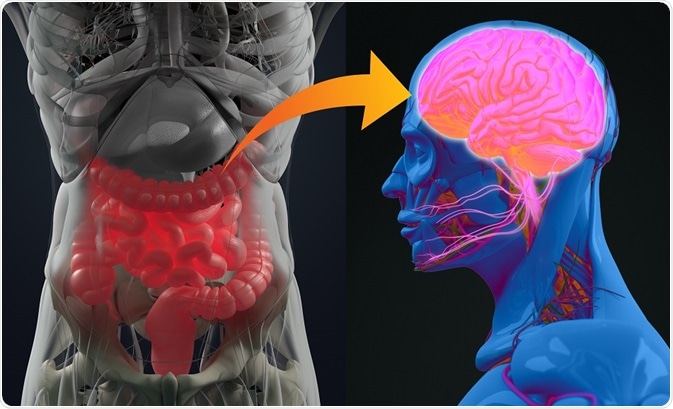There is growing recognition within the medical and scientific communities of the link between the microbial composition of the intestines and the central nervous system, known as the “gut-brain axis”.

This encompasses bidirectional communication channels between the central nervous system, the enteric nervous system, and the endocrine system.
Moreover, the gut-brain axis is responsible for the regulation of immune responses in both the intestines and the brain, with all aspects being heavily affected by the activity of intestinal microorganisms. It is no wonder then that dysregulation of gut microbiota may lead to various disturbances and diseases in the human body.
However, there are still a lot of question marks regarding both the content and repercussions of this dialogue between the central nervous system and the gastrointestinal system. Intestinal health can influence the brain, and research is pointing towards chronic intestinal inflammation as a potential culprit in neurodegenerative conditions such as Alzheimer's and Parkinson’s disease.
Alzheimer’s Disease
Alzheimer’s disease represents a progressive, irreversible brain disorder that gradually destroys memory and thinking capabilities, and eventually the capacity to carry out the simplest functions. The condition is characterized by an inflammatory response to beta-amyloid, a protein which has the propensity to activate microglia and instigate an inflammatory response.
A myriad of gut pathogens display harmful impact on stimulating gut inflammation and negatively affecting brain function, subsequently promoting neurodegenerative disorders like Alzheimer’s disease. Species that may be involved in this process include Chlamydophila pneumoniae, Salmonella enterica susp. enterica ser. Typhimurium, Helicobacter pylori and Lachnospiraceae.
Case-control studies have shown that patients with Alzheimer’s disease infected with Helicobacter pylori have lower scores in the Mini–Mental State Examination (MMSE) and higher cognitive impairment. Furthermore, the eradication of this organism was shown to prolong the lifetime of patients with Alzheimer’s disease, suggesting its potential role in pathogenesis.
Deposits akin to the plaques in Alzheimer’s disease were found in mice brains after they were intranasally infected with Chlamydophila pneumoniae. The infected cells showed structures which had a close resemblance to both neurofibrillary tangles and neuritic senile plaques in the brain of individuals with Alzheimer’s disease.
On the other hand, some bacteria have been found to be beneficial in maintaining brain function and preventing mental disorders. Some notable examples are Lactobacillus helveticus, Lactobacillus fermentum strain NS9, Bifidobacterium longum and Bifidobacterium dentium.
The Microbiome Project: Gut-Brain Axis
Parkinson’s Disease
Parkinson’s disease is the most common movement disorder in adults, and among the most frequently observed neurodegenerative disorders. It is a chronic condition characterized by tremor, stiffness, bradykinesia and postural instability, which gives rise to difficulties in walking, talking and completing simple tasks in affected individuals.
In Parkinson’s disease, intestinal dysregulation is usually observed several years prior to the clinical manifestation of the illness. Some novel hypotheses state that the condition originates in the gut and then spreads to the brain through the gut-brain axis – more specifically, via stimulation of the vagus nerve and the spinal cord. This is supported by the fact that the parasympathetic vagal fibers that innervate the intestine (among other regions) emerge from the dorsal motor nucleus.
Researchers are interested in understanding the influence of the gut microbiota in regard to Parkinson’s disease. One early study where fecal microbiota samples were acquired from 72 individuals with Parkinson’s disease and their age-matched controls revealed increased numbers of Enterobacteriaceae and reduced numbers of Prevotellaceae in affected individuals.
Moreover, excessive manganese is a putative risk factor in cases of environmentally-linked Parkinson’s disease. Metal toxicity may influence gut motility and, consequently, alter the production of key microbial metabolites in the gut. Therefore it is highly likely that exposure to toxins in the environment can influence the profile of the gut microbiome producing possible unfavorable effects on the central nervous system.
Further Reading
Last Updated: Dec 29, 2022